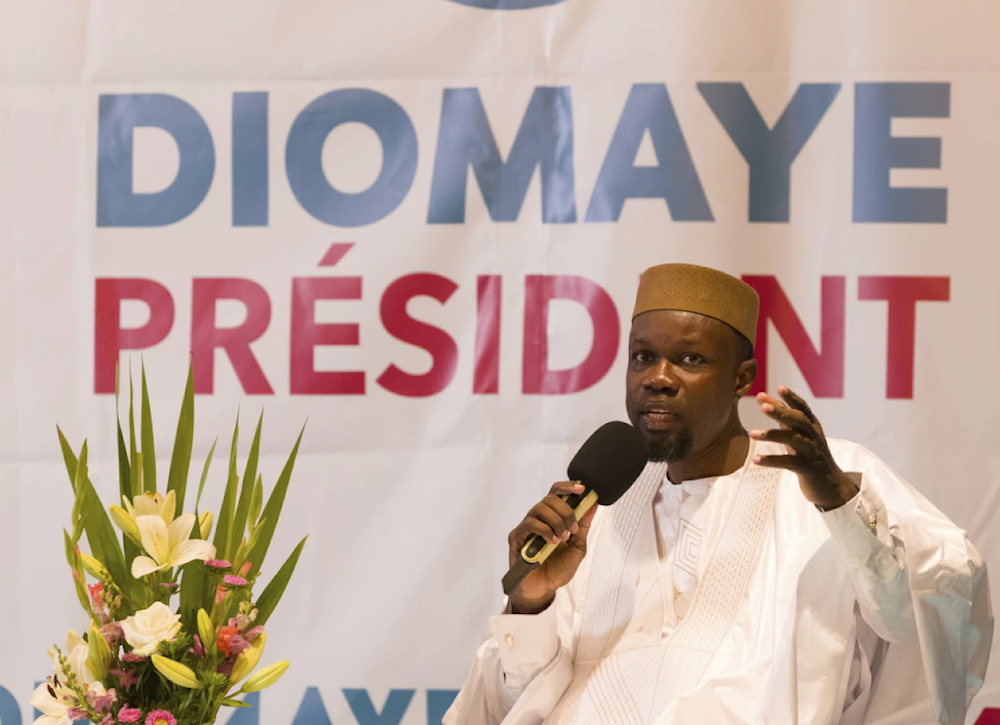Senegal to close all foreign military bases on its territory
Le Monde newspaper reported in January that France planned to dramatically cut its military contingents in Gabon, Senegal, and Côte d'Ivoire.
-

Senegal's Prime Minister Ousmane Sonko addresses supporters in Dakar, Senegal, on March 14, 2024. (AP)
Senegal has announced plans to dismantle all foreign military outposts in the near future, Prime Minister Ousmane Sonko stated on Friday.
Sonko stated while giving the General Policy Declaration, "The President of the Republic has announced the closure of all foreign military bases in Senegal in the very near future."
Le Monde newspaper reported in late January that France planned to dramatically cut its military contingents in Gabon, Senegal, and Côte d'Ivoire.
The newspaper cited official plans which detailed the number of French military soldiers in Gabon, Senegal, and Côte d'Ivoire's capitals might be cut to around 100 persons in each, with the majority of them performing support functions.
Late last month, French President Emmanuel Macron acknowledged for the first time the massacre of West African soldiers, executed by the French Army in 1944, in a letter addressed to the Senegalese government.
Protecting Senegal's sovereignty
The letter followed Senegalese President Bassiro Diomaye Faye's announcement in November that France would have to close its military bases in Senegal, emphasizing that the country would not allow military bases of any foreign state on its soil, as their presence contradicts Senegal's sovereignty.
In an interview with AFP, Faye discussed an upcoming update to Senegal’s military cooperation doctrine, stating that the revision "clearly means there will be no military bases in Senegal for any country."
Faye stressed the need to redefine Senegal's partnership with France, ensuring it is based on cooperation and mutual respect, free from any military presence. He reaffirmed Senegal's move to diversify its international partnerships away from foreign military presence, citing strong ties with countries like China, its top trade partner, without the need for military bases.
The Senegalese president welcomed France's acknowledgment of its responsibility for the Thiaroye massacre, committed by French forces near Dakar in early 1944, calling it a significant step. He expressed appreciation for the letter of recognition sent by Macron, who apologized for his inability to attend the upcoming 80th-anniversary commemoration of the massacre.
Faye did not rule out the possibility of Senegal demanding compensation for the victims' families. He further emphasized his commitment to enhancing Senegal’s sovereignty and pursuing a new course in its international relations based on equitable cooperation and mutual respect.

 3 Min Read
3 Min Read








